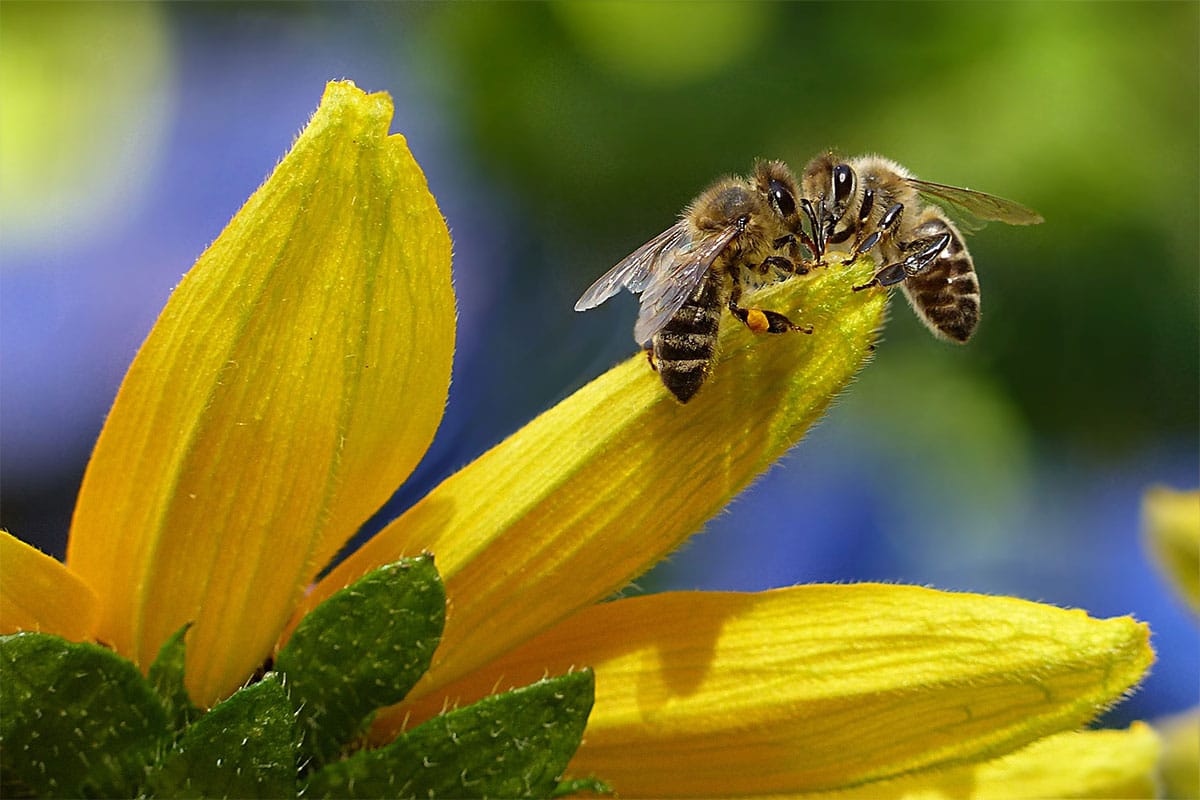Save the Bees!

Bees sometimes get a bad wrap because, well, when they sting you, it hurts! But do you know how much they do for us?
According to the NRDC, 1 in every 3 bites of food we eat depends on bees and other pollinators! It’s estimated that honey bees are responsible for about $15 billion in US agricultural crops each year. And they don’t even charge us for that service!
But recently, due to a number of factors including habitat loss, climate change, disease, and the use of certain insecticides, 40% of honey bee colonies collapsed between spring of 2017 to 2018.
So we think it’s time to take action and help our hardworking, incredibly intelligent friends. We turned to Lori Roth – beekeeper and long-time REVERB volunteer (and in the interest of full disclosure the mom of community and volunteer manager Paige) – to offer up some tips!
Hi!
My name is Lori and I am a Maine beekeeper with a BA in Environmental Science and Policy from the University of Southern Maine (also an enthusiastic REVERB volunteer)! As a beekeeper, I know that honey bees are efficient pollinators, essential to global ecosystems.
Honey bee facts:
- Honey bees are vegetarians
- Honey bees fly at about 15 MPH-so efficiently that just an ounce of honey would be enough to fuel a bee’s trip around the world
- Honey bees live in colonies of 20,000-60,000 bees
- In addition to producing honey and beeswax, honey bees pollinate about 80% of the crops that we humans depend on for a third of our diet.
- Honey bees will travel up to 5 miles from home to collect nectar, pollen and water.

- Abandon the notion of a “perfect lawn”. Dandelions and clover are two of bee’s favorite foods and are important nectar and pollen sources in the spring.
- Spray yourself and not your yard. Pesticides, herbicides and fertilizers are harmful to bees, not great for your water either.
- Urge the EPA and USDA to ban neonicotinoids, a widely used class of pesticide. Find a petition asking legislators to ban them.
- Consider planting some bee friendly flowers. Lavender, thyme, mint and rosemary are just a few. Be sure to check with the nursery when buying plants. Sometimes “bee friendly” plants have been treated with neonicotinoids.
- Sponsor a hive! https://thehoneybeeconservancy.org/beekeeping-grants/
Happy Spring!
